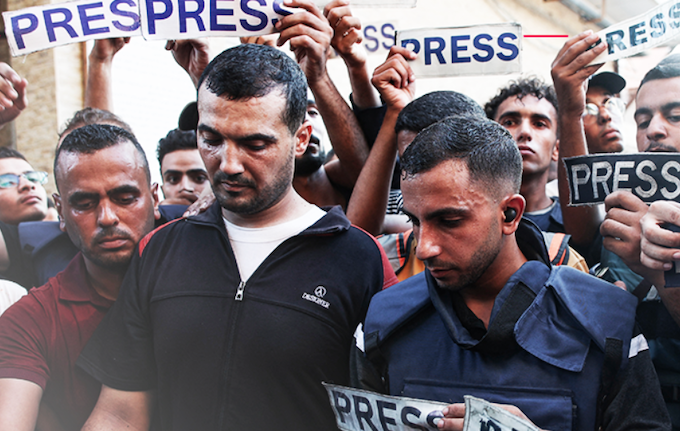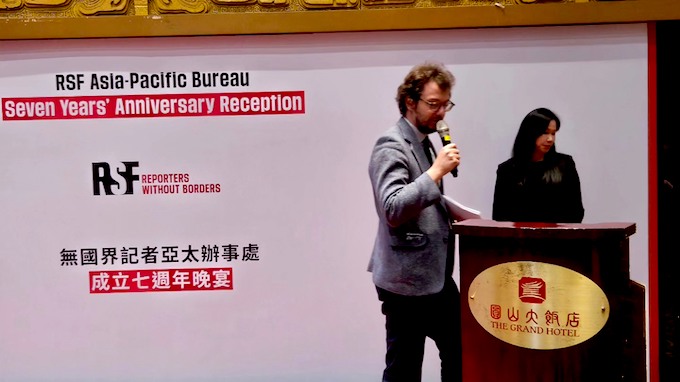
More than 150 press freedom advocacy groups and international newsrooms have joined Reporters Without Borders (RSF) and the Committee to Protect Journalists (CPJ) in issuing a public appeal demanding that Israel grant foreign journalists immediate, independent and unrestricted access to the Gaza Strip.
The organisations are also calling for the full protection of Palestinian journalists, nearly 200 — the Gaza Media Office says more than 230 — of whom have been killed by the Israeli military over the past 20 months.
For more than 20 months, Israeli authorities have barred foreign journalists from entering the Gaza Strip, says RSF in a media release.
- READ MORE: Israel’s war on Gaza deadliest conflict ever for journalists, says report
- ‘Ban on truth’: UNRWA condemns Israel for barring journalists from entering Gaza
- Other Gaza media freedom reports
During the same period, the Israeli army killed nearly 200 Palestinian journalists in the blockaded territory, including at least 45 slain for their work.
Palestinian journalists who continue reporting — the only witnesses on the ground — are facing unbearable conditions, including forced displacement, famine, and constant threats to their lives.
This collective appeal, launched by RSF and CPJ, brings together prominent news outlets from every continent demanding the right to send correspondents into Gaza to report alongside Palestinian journalists.
The signatories include Asia Pacific Report from Aotearoa New Zealand.
“The media blockade imposed on Gaza, combined with the massacre of nearly 200 journalists by the Israeli army, is enabling the total destruction and erasure of the blockaded territory,” said RSF director-general Thibaut Bruttin.
“Israeli authorities are banning foreign journalists from entering and ruthlessly asserting their control over information.
“This is a methodical attempt to silence the facts, suppress the truth, and isolate the Palestinian press and population.

“We call on governments, international institutions and heads of state to end their complicit silence, enforce the immediate opening of Gaza to foreign media, and uphold a principle that is frequently trampled — under international humanitarian law, killing a journalist is a war crime.
“This principle has been violated far too often and must now be enforced.”

The media blockade on Gaza persists despite repeated calls from RSF to guarantee foreign journalists independent access to the Strip, and legal actions such as the Foreign Press Association’s (FPA) petition to the Israeli Supreme Court.
Palestinian journalists, meanwhile, are trapped, displaced, starved, defamed and targeted due to their work.
Those who have survived this unprecedented massacre of journalists now find themselves without shelter, equipment, medical care or even food, according to a CPJ report. They face the risk of being killed at any moment.
To end the enduring impunity that allows these crimes to continue, RSF has repeatedly referred cases to the International Criminal Court (ICC), urging it to investigate alleged war crimes committed against journalists in Gaza by the Israeli army.
RSF also provides aid to Palestinian journalists on the ground — particularly in Gaza — through partnerships with local organisations such as ARIJ (Arab Reporters for Investigative Journalism).
This partnership provides Palestinian journalists with psychological and professional support, ensuring the continued publication of high-quality reporting despite the blockade and the risks.
Through this cooperation, RSF reaffirms its commitment to defending independent, rigorous journalism — even under the most extreme conditions.
- See the full media signatory list at RSF
- Under the latest rankings by the RSF 2025 World Press Freedom Index, Israel is 112th and Palestine 168th out of 180 countries surveyed.










































